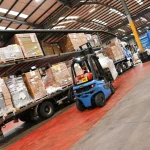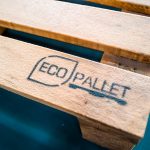
5 Cost-Saving Benefits of Heat-Treated Pallets for Kenyan Businesses
Introduction
In Kenya’s competitive business landscape, cost efficiency is crucial for manufacturers and exporters. Heat-treated pallets, compliant with ISPM 15 standards, offer significant financial advantages over untreated wooden pallets. By investing in these durable and pest-free pallets, businesses can enhance efficiency, reduce losses, and comply with international shipping regulations. This article explores five key cost-saving benefits of heat-treated pallets for Kenyan businesses.
1. Reduced Risk of Shipment Rejection and Delays
International shipping regulations require pallets to be ISPM 15-compliant. Non-compliant pallets may lead to:
- Shipment delays due to inspections and quarantines
- Rejected goods, resulting in additional logistics costs
- Financial penalties for failing to meet export standards
By using heat-treated pallets, Kenyan exporters avoid these costly disruptions, ensuring smooth international trade operations.
2. Longer Lifespan and Lower Replacement Costs
Heat-treated pallets are more durable than untreated wooden pallets. Benefits include:
- Resistance to mold, fungi, and insect infestation
- Reduced wear and tear in storage and transport
- Extended lifespan, minimizing frequent replacements
Kenyan businesses can lower operational expenses by reducing the frequency of pallet purchases.
3. Improved Supply Chain Efficiency
Heat-treated pallets enhance the efficiency of logistics operations by:
- Reducing contamination risks in warehouses and shipping containers
- Ensuring smoother customs clearance processes
- Enhancing stacking strength for better space utilization
Efficient supply chains lead to lower handling costs and improved overall productivity.
4. Decreased Product Damage and Spoilage
For businesses in the food, pharmaceutical, and agricultural sectors, product safety is a priority. Heat-treated pallets help in:
- Preventing pest-related contamination
- Reducing moisture retention that leads to product spoilage
- Ensuring compliance with hygiene and safety standards
Minimizing product loss due to contamination directly translates to cost savings.
5. Compliance with Export Regulations Without Additional Costs
Many countries, including key export destinations for Kenyan goods, require ISPM 15 certification. Heat-treated pallets:
- Eliminate the need for costly fumigation treatments
- Avoid fines and penalties associated with non-compliance
- Reduce administrative costs related to customs documentation
By choosing heat-treated pallets, Kenyan businesses can meet regulatory requirements without incurring extra expenses.
Conclusion
Investing in heat-treated pallets is a smart financial decision for Kenyan businesses looking to optimize costs while ensuring compliance with international trade standards. From reducing shipment delays to improving supply chain efficiency and minimizing product loss, these pallets provide a long-term return on investment. As global trade regulations continue to evolve, adopting heat-treated pallets is not just a cost-saving measure but a necessity for sustainable growth.





Add a comment